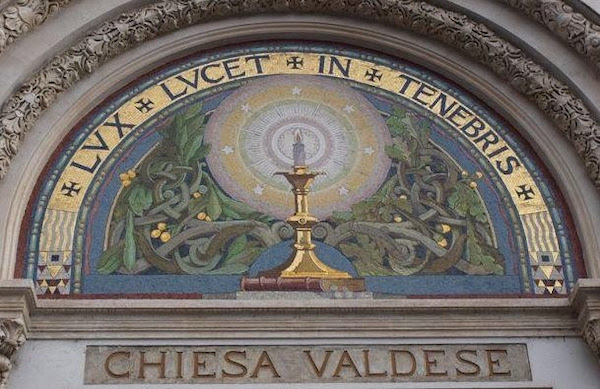When was the American Waldensian Society founded? What is its purpose? Who are its partners? Carol Bechtel, the executive director of the American Waldensian Society answers these questions and others in the article below.
The American Waldensian Aid Society (AWS) dates back to 1906, when a coalition of congregations in New York City came together “to collect funds and apply the same to the aid of the Waldensian Church in Italy and elsewhere…and to arouse and maintain interest throughout the US in the work of said Church.” This initiative was tapping into the love, loyalty, and generosity of Waldensian immigrants who had made their way to the USA during the latter half of the 19th century. Having gained a foothold in the Americas, these immigrants sought not only to aid in the settlement of Italian Protestant immigrants, but also to support their Waldensian siblings back in their homeland who were suffering from poverty, hunger, and the after-effects of centuries of persecution.
Some of AWS’ early support included earthquake relief (1908, Sicily), the building of the landmark Piazza Cavour Church in Rome (1914), and the care of children orphaned by WWI.
The 1920s and 1930s saw the proliferation of AWS branches, notably in urban areas, with branch-by-branch attention to overseas salary support, evangelization ministries, and focused building projects. As the shadow of fascism stole across Italy, interest began to falter at points. However, even when overseas contact broke off during the WWII years, the AWS and its constituencies still made the remarkable faith commitment to continue to raise and bank funds for Italy’s day of liberation and renewed ministry initiatives.
No postwar effort generated more AWS enthusiasm than the late ‘40s/early’ 50s campaign to build Agape, the conference center deep in the Waldensian Valleys near the Italian/French border. This likely marked the AWS’ first sustained effort to send Americans overseas as co-workers for shoulder-to-shoulder ministry. In the ensuing decades the sending abroad of volunteers in mission would become a signal AWS endeavor.
In furtherance of marking the Waldensians’ “800 years,” AWS sponsored and published in 1980 the English translation Giorgio Tourn’s I Valdesi (1974). Written through the prism of modern historical-critical scholarship, the Tourn work was the first restatement of the Waldensian experience in half a century.
The last decades of the 20th century saw the AWS board’s “discovery” of Waldensian ministry in Argentina and Uruguay and increasing efforts to facilitate “crossings.” These exchanges enabled overseas Waldensian seminarians and leaders to engage in mission projects in the US, and for US church people to do the same in Europe and South America. These crossings forged countless personal relationships, fortified Waldensian and US denominational partnerships, and became a key part of the emerging identity of the American Waldensian Society as a whole.
In recent years the AWS has undergone a transition from being a “membership” society to working as a Board of committed individuals who represent a range of core denominations (Presbyterian Church (USA), United Church of Christ, the Reformed Church in America, and the United Methodist Church. While this is a shift from the society’s original structure which featured regional branches, the Society still maintains a wide database of “Friends of AWS” with whom the Board communicates through weekly newsletters.
Today the American Waldensian Society focuses on the following priorities:
· Integration of and advocacy for refugees and immigrants
· Expanded presence in the culture through “Diaconal” (caring) ministries
· Commitment to ecumenical initiatives through participation in the work of European and Latin American councils of churches, the World Council of Churches, the World Communion of Reformed Churches, and the World Methodist Council
· Commitment to Interfaith dialogue
· Supporting education about Waldensian mission and heritage
· Continuing to provide support for exchanges among and between our Waldensian partners around the world
· Support for the various projects and priorities of our Waldensian partners in both Europe and South America
In all these efforts, we seek to live out that central vocation of Waldensians throughout the centuries, namely, to be “a light in the darkness.”
The Rev. Dr. Carol M. Bechtel is the Executive Director of the American Waldensian Society as well as Professor of Old Testament at Western Theological Seminary in Holland, Michigan, USA. This article was originally written at the request of the German Waldensian Society.

